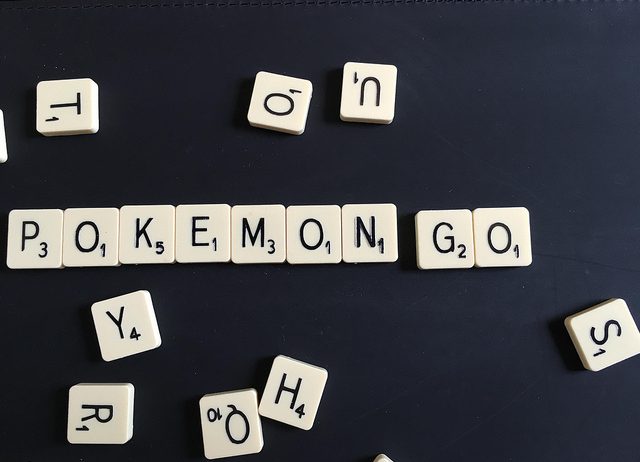It’s all over the news. It’s all over your Facebook feed. Your kids are probably into it. You may have even tried it yourself. It’s time we had a talk about Pokémon Go.
Wait, don’t get us wrong. This isn’t an intervention. Yes, there have been sensational (and sometimes comical) stories about the ways players have gotten into trouble by paying more attention to Pokémon Go than to their surroundings, but we trust you to be responsible with augmented reality (AR) gaming. And teaching your kids responsible AR gaming gives them practice with focus, flexibility, working memory, self-control, self-awareness, planning, and time management.
Pokémon Go is getting kids (and their parents) out of the house, meeting new people, trying new things, and exploring their neighborhoods in ways they never have before. Let’s talk about a few of the ways Pokémon Go is the perfect game for your kids to play right now (and why it’s also the perfect game to play along with them).
They’ll actually want to get out of the house. If you’re like most parents, your biggest concern is getting your kids off the couch and out into the fresh air. And for kids with ADHD and attentional difficulties in general, that outdoor exercise is vital for helping kids relax and focus. Pokémon Go will motivate your child to do just that, because it’s impossible to do much in the game if you’re sitting in one spot. Finding new Pokémon, Gyms, and Pokéstops requires players to explore the world around them. Your kids will be begging for outdoor play.
They’ll make discoveries. Because most Pokéstops and Gyms are at landmarks and in places of business, players are finding and trying new things. For some, just exploring places on foot that they’ve only ever driven by is leading to an increased awareness and appreciation of their neighborhoods and communities. Trying new things and switching up habits is great flexibility practice.
They’ll make connections. We’ve long understood video games to be something of an equalizer. They bring together people of varying ages, backgrounds, and abilities. This is especially true when it comes to Pokémon Go — THE game to play right now — so encouraging your child to play means allowing them to feel like they are part of something. And kids with ADHD and autism are reaping the benefits. Parents are coming out of the woodwork to talk about Pokémon Go, revealing the ways the game is making a huge difference in how their kids view the world and interact with other people. Kids are gaining senses of belonging and connectedness from Pokémon Go, and parents are seeing an increase in smiles, laughter, cooperation, and engagement. Plus, a love of Pokémon Go is likely to lead to other interests.
They’ll be primed for conversation. It’s true that kids are using thinking skills like focus, flexibility, working memory, self-awareness, and a whole host of positive psychology and social emotional learning (SEL) skills when they play Pokémon Go. But they won’t necessarily identify or apply those skills to other activities without parental intervention. The title of this article isn’t just to catch your attention — we really do need to talk about Pokémon Go with our kids, because talking and playing together are what make video games most effective as teaching tools. Pokémon Go makes this so easy. Go for a walk in the park or around town and see how excited they are to be hunting Pokémon with you. You’ll probably be surprised at how much you bond over the game, and how much you talk about things that aren’t Pokémon Go.
Read more about why we recommend that parents play Pokémon Go, or any video game for that matter, with their kids. Our Pokémon GO Playbook is available now, with information about the thinking skills kids use in the game and ideas for activities that help generalize these skills. In the meantime, check out the awesome video that introduces parents to Pokémon Go set-up and game play, created by our Let’s Play Editor, Ryan Smith. Have you been playing Pokémon Go with your kids? Tell us about it in the comments or come talk to us on Facebook.
Featured image: Flickr user Jeff Djevdet




